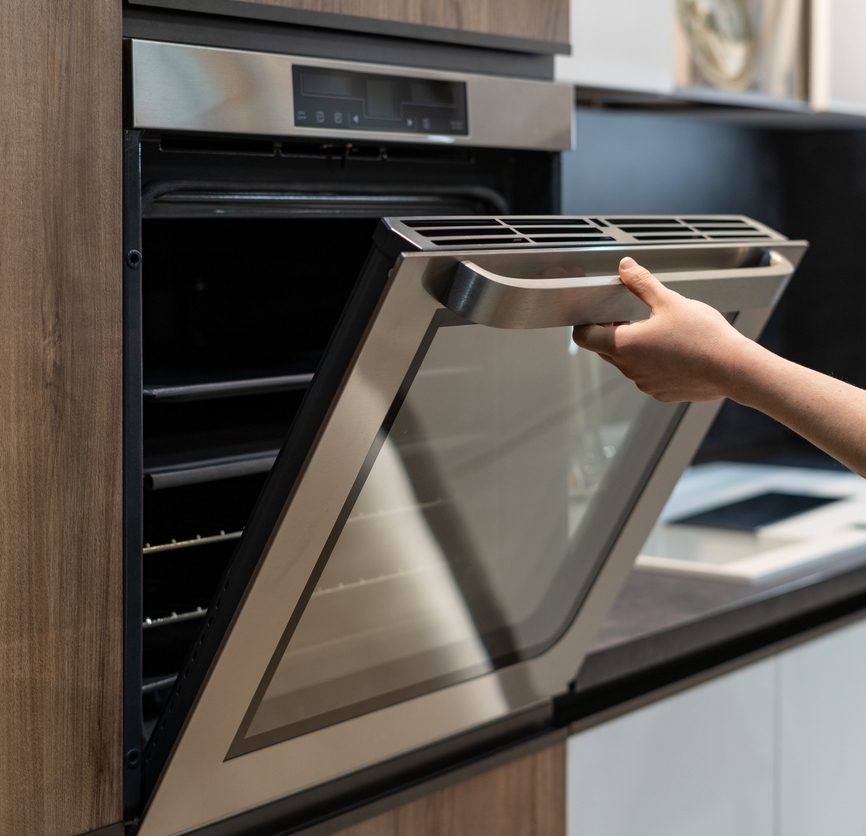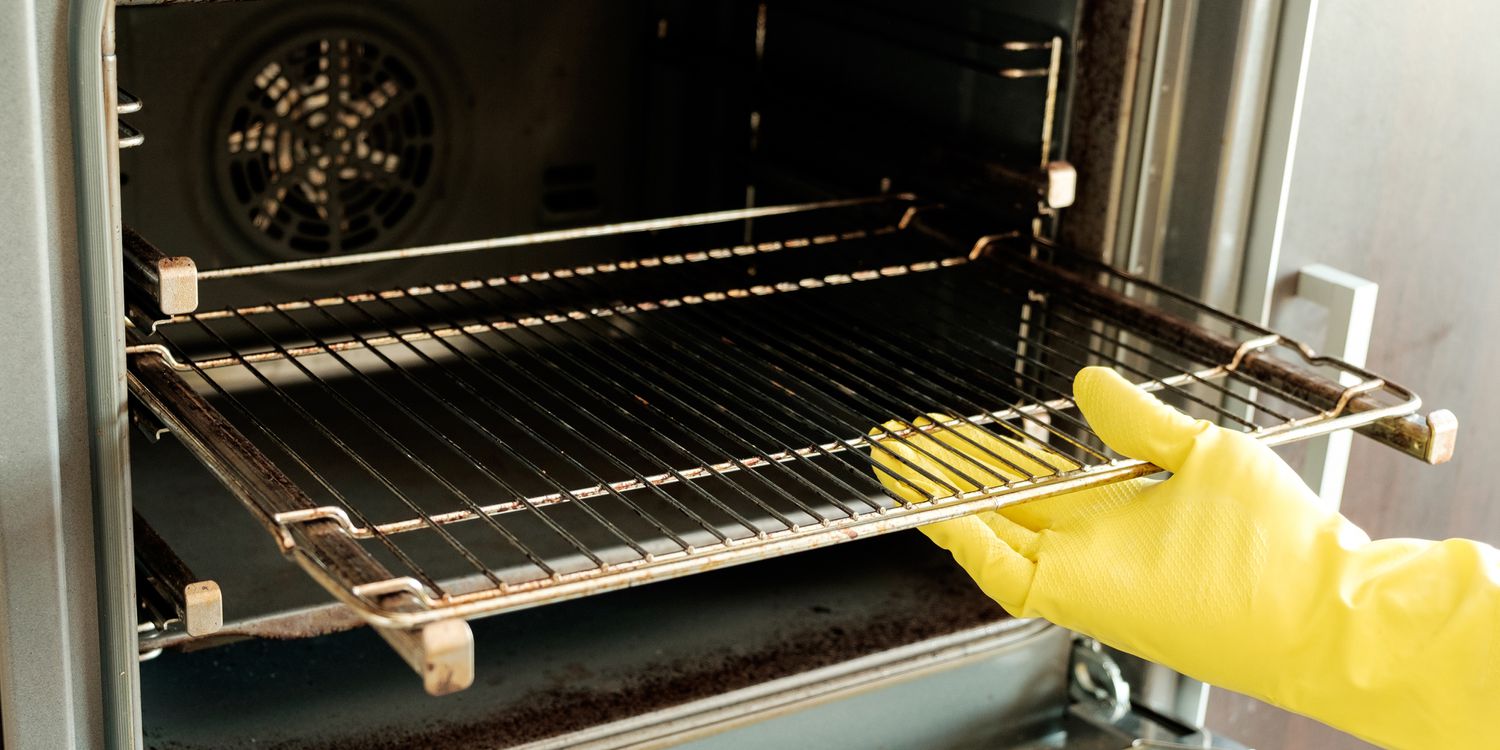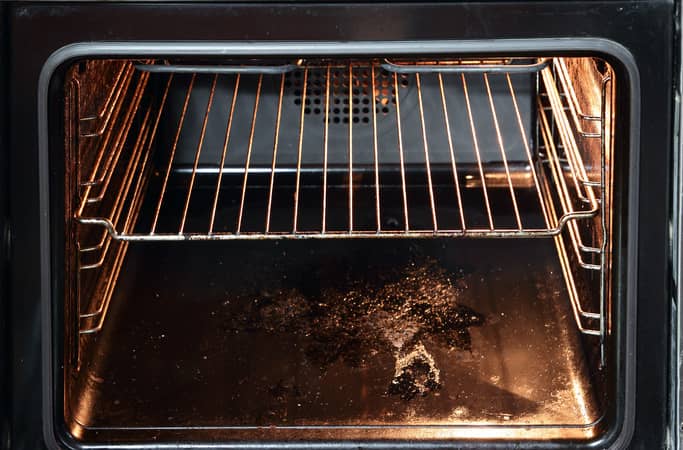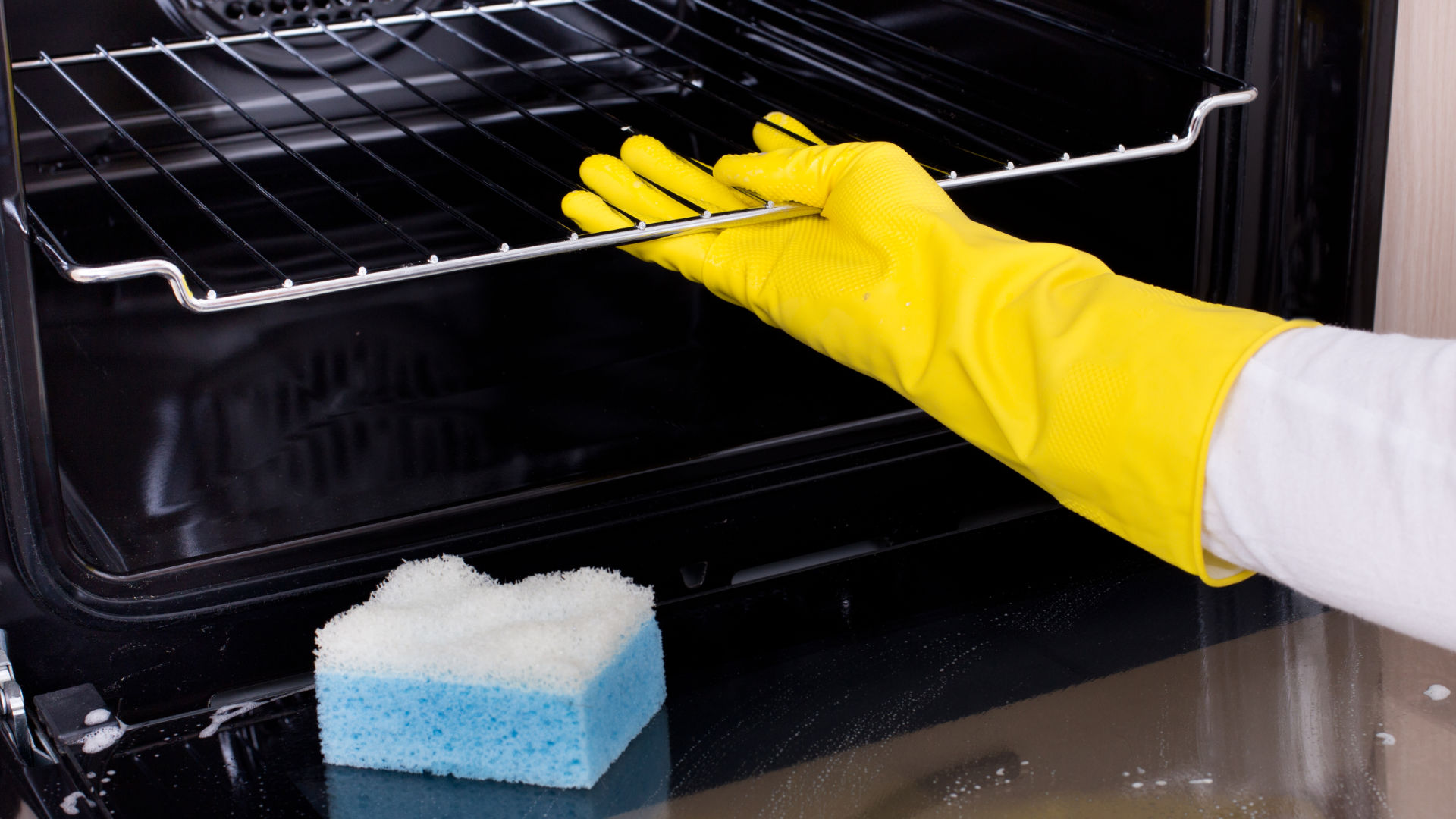Introduction

Introduction:
The advent of self-cleaning ovens has revolutionized the way we maintain our kitchen appliances. With their innovative features and advanced technology, these ovens offer a convenient and efficient way to keep our cooking spaces clean and hygienic. However, despite their many benefits, there are still lingering concerns and misconceptions surrounding self-cleaning ovens.
In this article, we aim to debunk the myths and set the record straight about the safety and effectiveness of self-cleaning ovens. We will address common misconceptions, such as the release of toxic fumes, the potential for fires, and the alleged damage to the oven itself. By providing factual information and clarifying how self-cleaning ovens actually work, we hope to promote a better understanding of these appliances and help homeowners make informed decisions.
Join us as we delve into the world of self-cleaning ovens and debunk the myths that have caused unwarranted fear and misunderstanding.
Understanding The Importance Of Oven Cleaning And Debunking Common Myths
Regular oven cleaning is essential for maintaining a clean and hygienic kitchen. It not only improves the appearance of the oven but also prevents the buildup of grease, grime, and food residue that can affect the taste and quality of your cooked meals. By debunking common myths surrounding oven cleaning, you can understand the importance of this task and make informed decisions about maintaining your oven.
One common myth is that self-cleaning ovens release toxic fumes. However, modern self-cleaning ovens are designed to operate at high temperatures, which effectively incinerates any food particles and spills. The resulting fumes are minimal and are not harmful to inhale, as long as the oven is properly ventilated. Another myth is that self-cleaning ovens can cause fires. In reality, these ovens have safety features, such as automatic shut-off, to prevent any potential fire hazards.
By understanding the facts, you can confidently clean your oven without fear of harm. Regular oven cleaning, whether through self-cleaning cycles or manual methods, ensures a safe and efficient cooking environment.
Myth 1: Self Cleaning Ovens Release Toxic Fumes
Self Cleaning ovens have often been associated with the myth that they release toxic fumes during the cleaning process. However, this is not true. When a self cleaning oven is used properly and with the recommended ventilation, it does not pose a risk to your health or release harmful fumes.
Modern self cleaning ovens are designed to operate at high temperatures, which effectively incinerates any food particles and spills. The resulting fumes are minimal and are not harmful to inhale. Moreover, self cleaning ovens are equipped with proper ventilation systems and safety features that ensure the fumes are properly dispersed.
It is important to follow the manufacturer’s instructions and use the self cleaning function in a well-ventilated area. By doing so, you can confidently clean your oven without any concerns about toxic fumes affecting your health.
Explanation Of How Self Cleaning Ovens Work And Why They Are Not Harmful

Self cleaning ovens utilize a high-temperature cleaning cycle to burn off any food particles and spills inside the oven. This cycle typically operates at temperatures around 800 degrees Fahrenheit (427 degrees Celsius). During the cleaning process, the oven’s interior is heated to such extreme temperatures that any organic matter inside is reduced to ash. This eliminates the need for manual scrubbing or harsh cleaning chemicals.
Contrary to the myth, self cleaning ovens do not release toxic fumes that can be harmful to your health. The fumes generated during the cleaning cycle are minimal and not dangerous to inhale. Additionally, modern self cleaning ovens are equipped with proper ventilation systems to ensure that any residual fumes are safely dispersed.
It is important, however, to follow the manufacturer’s instructions and use the self cleaning function in a well-ventilated area. This ensures optimal safety and effectiveness of the cleaning process. With proper usage, self cleaning ovens are a convenient and safe option for maintaining a clean and healthy kitchen environment.
Myth 2: Self Cleaning Ovens Can Cause Fires
One common myth surrounding self cleaning ovens is that they can cause fires. However, this belief is unfounded. Self cleaning ovens are designed with multiple safety features to prevent fires and minimize any risks associated with the high temperatures used during the cleaning process.
Self cleaning ovens are equipped with a lock mechanism that securely seals the oven door during the cleaning cycle. This prevents any accidental opening and potential ignition of flammable materials in the vicinity. Additionally, modern self cleaning ovens have thermal sensors that monitor the internal temperature and automatically shut off if it exceeds a safe threshold.
Furthermore, it is important to note that self cleaning cycles are typically shorter in duration, ranging from two to six hours. This minimizes the exposure to high temperatures and reduces the likelihood of fire hazards. As long as the oven is used according to the manufacturer’s instructions and proper precautions are taken, the risk of fires in self cleaning ovens is extremely low.
Clarifying The Safety Measures In Self Cleaning Ovens And Addressing Fire Concerns
Self cleaning ovens are equipped with various safety measures to prevent fires and minimize any risks associated with the high temperatures used during the cleaning process. One important safety feature is the lock mechanism, which securely seals the oven door during the cleaning cycle, preventing any accidental opening and potential ignition of flammable materials in the vicinity. Additionally, modern self cleaning ovens have thermal sensors that monitor the internal temperature and automatically shut off if it exceeds a safe threshold.
It is also worth noting that self cleaning cycles are relatively short, ranging from two to six hours. This minimizes the exposure to high temperatures and reduces the likelihood of fire hazards. As long as the oven is used according to the manufacturer’s instructions and proper precautions are taken, such as removing any flammable materials from the oven and its surroundings, the risk of fires in self cleaning ovens is extremely low.
Overall, self cleaning ovens are designed with safety in mind and are unlikely to cause fires when used correctly.
Myth 3: Self Cleaning Ovens Damage The Oven

Many people believe that self cleaning ovens can cause damage to the oven itself. However, this is a common misconception. Self cleaning cycles utilize high temperatures to burn off the accumulated grease and food residue, making it easier to wipe away. While the intense heat can cause the oven to become extremely hot during the cleaning process, modern self cleaning ovens are designed to handle these temperatures without sustaining damage.
The interior of the oven is typically made of materials that can withstand the high heat, such as porcelain, stainless steel, or ceramic. These materials are durable and can handle the self cleaning process without being damaged. It is important to note that any loose or damaged components, such as oven racks or gaskets, should be removed before initiating the self cleaning cycle to prevent any potential damage.
Overall, as long as the oven is used according to the manufacturer’s instructions and the oven is in good condition, self cleaning cycles will not cause any damage to the oven itself. It is a safe and effective method for keeping your oven clean and well-maintained.
Exploring The Effects Of Self Cleaning Cycles On The Oven’s Interior And Exterior
During the self cleaning cycle, the intense heat generated by the oven can have some effects on both the interior and exterior of the oven. Firstly, the interior surfaces, such as porcelain, stainless steel, or ceramic, are designed to withstand the high temperatures without getting damaged. The high heat effectively burns off the grease and food residue, making it easier to wipe away. However, it is important to note that any loose or damaged components, like oven racks or gaskets, should be removed before initiating the self cleaning cycle to prevent any potential damage.
As for the exterior of the oven, it may become hot to the touch during the self cleaning process due to the high temperatures inside. It is essential to exercise caution and avoid touching the oven until it has cooled down. Additionally, it is always a good practice to clean the exterior of the oven regularly to maintain its appearance and ensure its longevity.
In conclusion, self cleaning cycles have minimal effects on the oven’s interior and exterior, as long as the oven is in good condition and used according to the manufacturer’s instructions. It is a safe and efficient method for keeping your oven clean and well-maintained.
Myth 4: Self Cleaning Ovens Are Not Effective
One common misconception about self-cleaning ovens is that they are not effective. However, this is far from the truth. Self-cleaning ovens use high heat to burn off food residue and grease, leaving the interior spotless without the need for scrubbing.
The self-cleaning cycle typically reaches temperatures of around 900 degrees Fahrenheit, effectively turning any leftover food into ash. This process is thorough and efficient, leaving no trace of residue behind.
Additionally, self-cleaning ovens often have different cleaning options, allowing users to choose the level of cleaning they require. This versatility ensures that even the toughest stains and spills can be effortlessly removed.
Moreover, self-cleaning ovens save time and effort, as there is no need to manually clean the oven. Instead, users can simply initiate the self-cleaning cycle, sit back, and let the oven do the work.
In conclusion, self-cleaning ovens are highly effective in removing stubborn grime and maintaining a clean cooking environment. They provide convenience and ease of use, debunking the myth that they are not efficient.
Examining The Efficacy Of Self Cleaning Ovens And Debunking The Misconception

Self-cleaning ovens have often been misunderstood and labeled as ineffective. However, a closer examination reveals the efficacy of these appliances in maintaining a clean cooking environment. The self-cleaning cycle, which reaches temperatures of around 900 degrees Fahrenheit, effectively incinerates any leftover food and grease, reducing them to ash. This thorough process eliminates the need for manual scrubbing and ensures a spotless interior.
Furthermore, self-cleaning ovens offer different cleaning options, allowing users to customize the level of cleaning required. This versatility enables the effortless removal of even the toughest stains and spills. The time and effort saved by using a self-cleaning oven are remarkable, as users can simply initiate the cleaning cycle and let the oven do the work.
In conclusion, self-cleaning ovens are highly effective in removing stubborn grime and maintaining a clean cooking environment. They provide convenience, ease of use, and thorough cleaning, debunking the misconception that they are not efficient. So, rest assured that your self-cleaning oven is capable of keeping your kitchen clean and hygienic without any compromise on effectiveness.
Conclusion
In conclusion, the misconception surrounding self-cleaning ovens and their potential dangers has been debunked. It is clear that self-cleaning ovens are not harmful or fatal when used appropriately. These ovens employ a high-temperature cleaning cycle that effectively incinerates food and grease, eliminating the need for manual scrubbing and ensuring a spotless interior. The safety measures in place, such as proper ventilation and following manufacturer’s instructions, further ensure a safe and healthy cooking environment. Self-cleaning ovens provide convenience, ease of use, and thorough cleaning, making them an invaluable addition to any modern kitchen. So, rest assured that your self-cleaning oven can keep your kitchen clean and hygienic without compromising on safety or effectiveness. Embrace the technology of self-cleaning ovens and enjoy the benefits they bring to your cooking routine.
Summarizing The Facts About Self Cleaning Ovens And Emphasizing Their Safety And Effectiveness
Self-cleaning ovens have revolutionized the way we clean our appliances, providing convenience and efficiency. After debunking common myths and misconceptions, it is clear that self-cleaning ovens are not harmful or fatal when used appropriately. These ovens employ a high-temperature cleaning cycle that effectively incinerates food and grease, eliminating the need for manual scrubbing and ensuring a spotless interior. The safety measures in place, such as proper ventilation and following manufacturer’s instructions, further ensure a safe and healthy cooking environment. Moreover, self-cleaning ovens are designed to withstand the high temperatures during the cleaning process, making them durable and long-lasting. Users can confidently enjoy the benefits of self-cleaning ovens, knowing that they provide a safe and effective way to maintain a clean and hygienic kitchen. With these facts in mind, it’s time to embrace the technology of self-cleaning ovens and make our cooking routines easier and more enjoyable.
Frequently Asked Questions About Self-Cleaning Ovens and Personal Safety
Q: Can a self-cleaning oven kill you?
A: While it is highly unlikely that a self-cleaning oven can directly cause death, there are certain safety precautions to consider during the cleaning process to ensure personal safety.
Q: How does the self-cleaning feature of an oven work?
A: Self-cleaning ovens use extremely high temperatures (typically around 800°F or 427°C) that incinerate any food residue or spills inside the oven. During the cleaning cycle, the high heat turns the debris into ash, which can then be easily wiped away after the oven has cooled down.
Q: Are self-cleaning ovens safe to use?
A: Yes, self-cleaning ovens are generally safe to use when used correctly and according to the manufacturer’s instructions. It is essential to follow safety guidelines and precautions during the cleaning process to prevent accidents or injuries.
Q: Can the fumes generated during self-cleaning be harmful?
A: The fumes produced during the self-cleaning cycle can be harmful if inhaled in large quantities. These fumes mainly consist of carbon monoxide and other by-products. However, modern self-cleaning ovens are designed to vent these fumes outside your home, reducing the risk of exposure. It is crucial to ensure proper ventilation during the cleaning process by opening windows or using an exhaust fan if available.
Q: Can the heat generated during self-cleaning damage surrounding cabinets or countertops?
A: The high temperatures reached during the self-cleaning cycle can potentially damage surrounding materials such as cabinets and countertops that are not heat-resistant. To prevent any damage, it is important to ensure proper clearance between the oven and adjacent surfaces as specified in the manufacturer’s instructions.
Q: Are there any precautions to take before starting the self-cleaning cycle?
A: Yes, there are several precautions to consider before starting the self-cleaning cycle:
- Remove any items, such as oven racks and utensils, from inside the oven.
- Clean up excessive spills or food debris that could generate excessive smoke during cleaning.
- Ensure that children and pets are kept away from the oven during operation.
- Verify that the kitchen is well-ventilated by opening windows or using exhaust fans.
Q: How long does the self-cleaning cycle typically take?
A: The duration of a self-cleaning cycle varies depending on the oven model but typically lasts between 2 to 6 hours. The oven locks during this process to prevent accidental opening.
Q: Can I interrupt the self-cleaning cycle if necessary?
A: It is generally recommended to allow the self-cleaning cycle to complete without interruption. However, in case of an emergency or safety concern, consult the user manual or contact the manufacturer for guidance on how to handle such situations safely.
Q: What should I do if my self-cleaning oven malfunctions during the cycle?
A: If your self-cleaning oven malfunctions during the cleaning cycle, it is best to contact the manufacturer or a professional technician for assistance. Follow any emergency instructions provided in the manual and discontinue use until the issue is resolved.
Remember, it’s important to thoroughly read and follow the instructions provided by the manufacturer to ensure the safe and proper use of your self-cleaning oven. If you have any specific concerns, always consult the user manual or contact the manufacturer for clarification.

Come for The Burgers… Stay for The Beers!